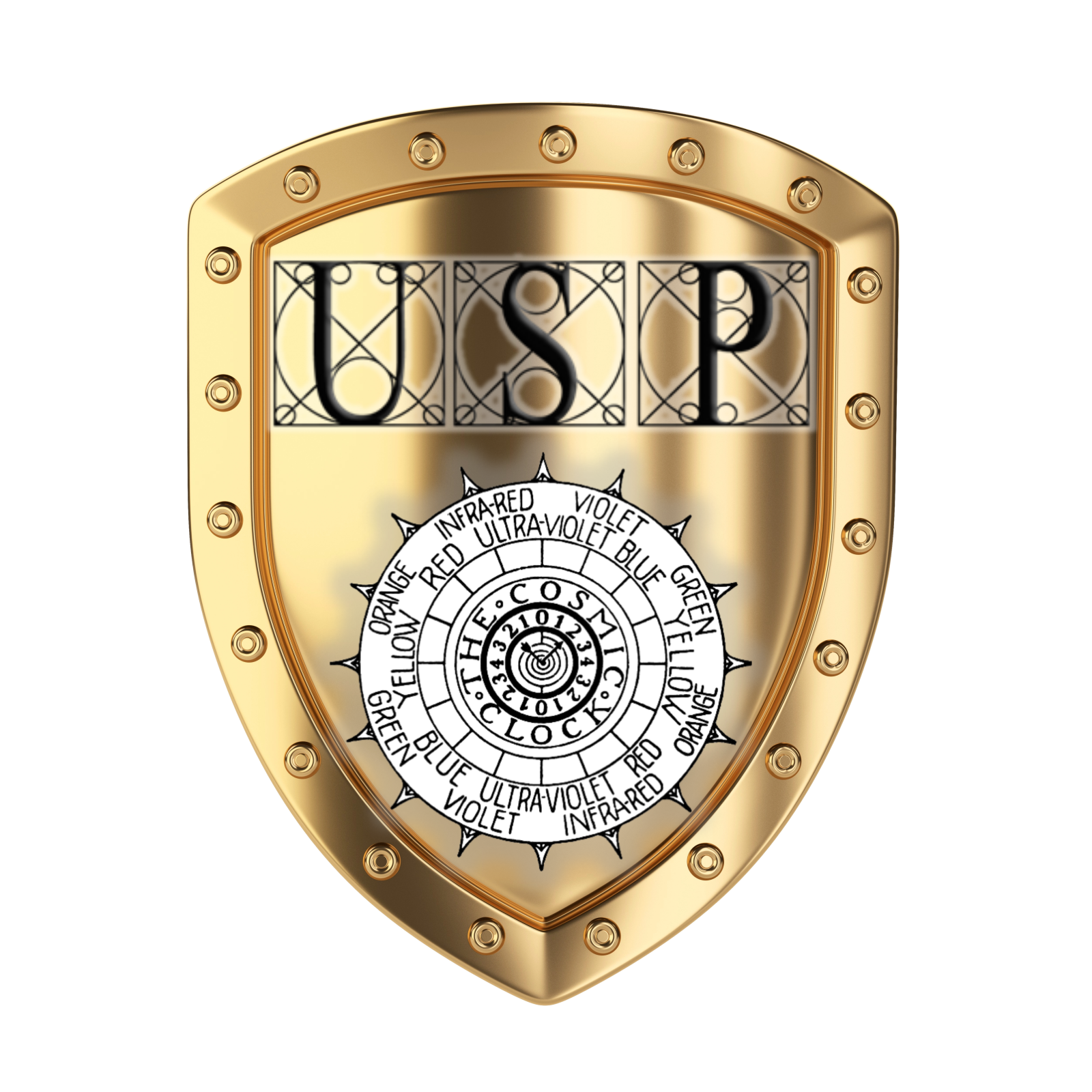The Twilight Club
An invitation to participate
The Twilight Club is an invitation for an inspired moral action and ethical practice in accord with an eternal moral vision and universal ethical principles on the basis of a rational, thinking-based global discourse and conversation on morality and ethics.
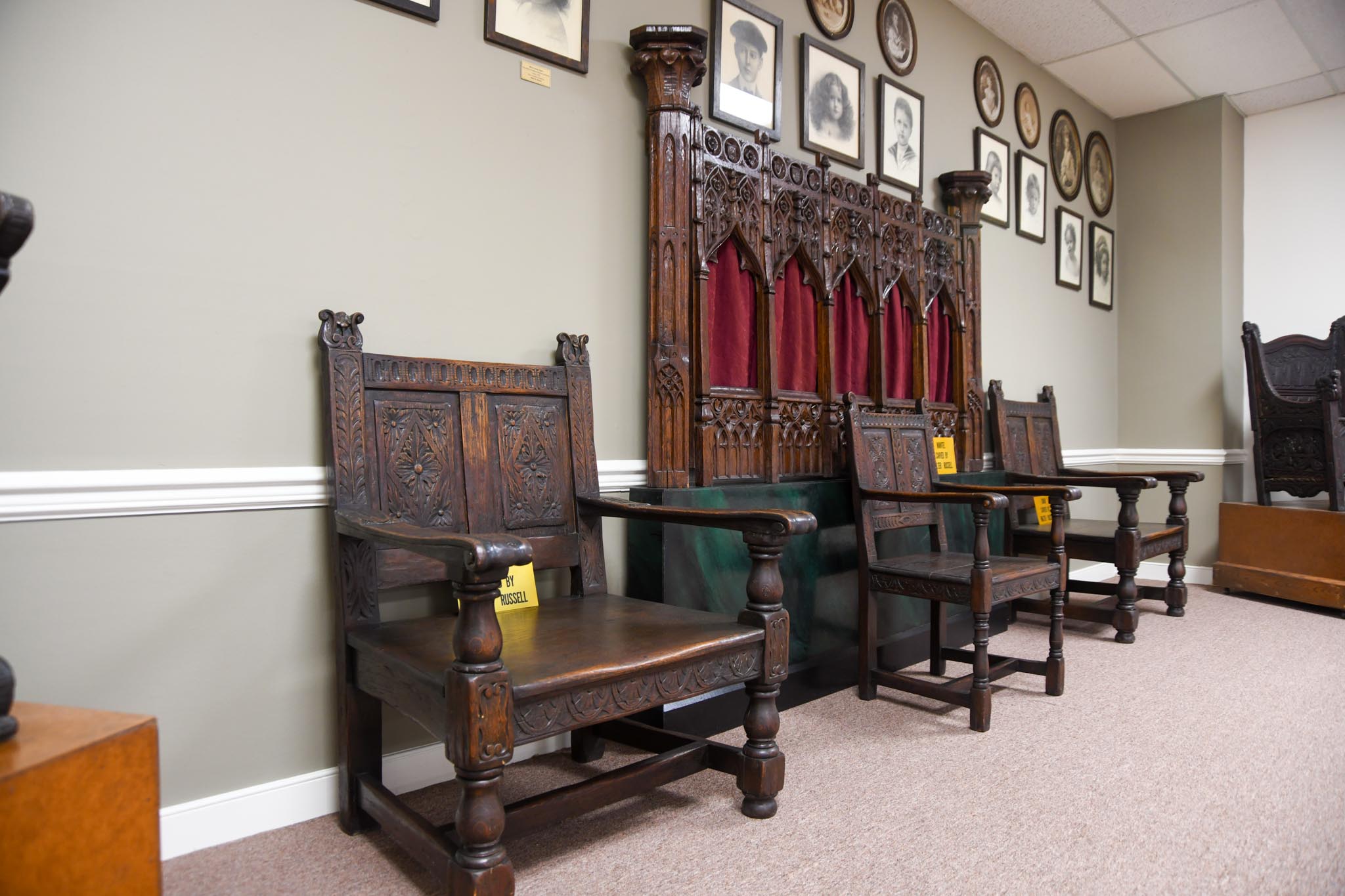
The Twilight Club is committed to the ideas that:
• Commitment to universal truth is the hallmark of morality, wherefore the act of assuming the responsibility of thinking in pursuit of universal truth is the foundational moral virtue
• Developing wisdom which consists in the capacity to sustain a dialogue with people that hold different ethical or philosophical points of view from one’s own is the essential moral virtue without which no peace or balance is possible in the world.
• Morality is morality in action, and action is daily action. Ethics is ethics in practice, and practice is daily practice. Therefore, no moral discourse is of any moral value if we cannot transform it into moral actions in our daily lives; nor is an ethical discourse of any ethical value if we cannot transform it into ethical practices in our daily lives.
• Human beings are at their best not when they are engaged in abstract reflection or when they are engaged in individual transformation for its own sake but when they are engaged in the act of transforming the corners of the world in which they live.
Our invitation for your participation in the Twilight Club is ultimately a call for moral actions and ethical practices expressed in your daily life. To participate in the work of the Twilight Club thus means, first and foremost, to live a moral life and to follow an ethical practice based on your own thinking and initiative in accord with the eternal vision and the universal principles of the Twilight Club. The Twilight Global Projects are designed only to bring forth an environment—a global ecology of thinking and action, of morality and ethics so that the individual can practice a simple deed of virtue on his/her own on a daily basis.
• Developing wisdom which consists in the capacity to sustain a dialogue with people that hold different ethical or philosophical points of view from one’s own is the essential moral virtue without which no peace or balance is possible in the world.
• Morality is morality in action, and action is daily action. Ethics is ethics in practice, and practice is daily practice. Therefore, no moral discourse is of any moral value if we cannot transform it into moral actions in our daily lives; nor is an ethical discourse of any ethical value if we cannot transform it into ethical practices in our daily lives.
• Human beings are at their best not when they are engaged in abstract reflection or when they are engaged in individual transformation for its own sake but when they are engaged in the act of transforming the corners of the world in which they live.
Our invitation for your participation in the Twilight Club is ultimately a call for moral actions and ethical practices expressed in your daily life. To participate in the work of the Twilight Club thus means, first and foremost, to live a moral life and to follow an ethical practice based on your own thinking and initiative in accord with the eternal vision and the universal principles of the Twilight Club. The Twilight Global Projects are designed only to bring forth an environment—a global ecology of thinking and action, of morality and ethics so that the individual can practice a simple deed of virtue on his/her own on a daily basis.
History of the Twilight Club
In the later decades of the 19th Century, the British philosopher, Herbert Spencer, took an honest look at world trends and predicted that civilization was on a downward trend, for culture, beauty and ethical practices were neglected in society. He believed that politicians were not likely or able to change the trends. If there was to be a change, how would it come about? He believed the poets, visionary thinkers and artists of the world would have the solution. In Britain he inspired men such as Rudyard Kipling, Sir Arthur Conan Doyle and Charles Darwin to consider the problem. In America, his friends Ralph Waldo Emerson, James Howard Bridge, Richard Watson Gilder, Oliver Wendell Holmes, Walt Whitman, Edwin Markham, Henry Holt, John Burroughs, Mark Twain and Andrew Carnegie took up the question. These men, searching for a way in which to change the negative direction of society to positive action, formed a gathering, calling themselves the Twilight Club, because they met at twilight—not simply the twilight of the day, but, as they saw the situation, they were meeting at the evening twilight of the 19th Century and the morning twilight of the 20th Century—at the twilight of civilization, unless the downward trend could be stopped.
Their conviction was that world peace, harmony and unity would only come about through the brotherhood of man. They were convinced that a person’s moral creed could not remain as words and platitudes, but must be translated into action. Building on this idea, they formed The Poets’ Code of Ethics, intended as a worldwide moral code that related strictly to how people acted towards each other, the ethical nature of the code being based on the concept of service to others and to the world.
Their conviction was that world peace, harmony and unity would only come about through the brotherhood of man. They were convinced that a person’s moral creed could not remain as words and platitudes, but must be translated into action. Building on this idea, they formed The Poets’ Code of Ethics, intended as a worldwide moral code that related strictly to how people acted towards each other, the ethical nature of the code being based on the concept of service to others and to the world.
The First Era: 1870’s – 1895
The Founders
Herbert Spencer
“The leading traits of a code [of ethics], under which complete living through voluntary cooperation is secured, may be simply stated. The fundamental requirement is that the life-sustaining actions of each shall severally bring him the amounts and kinds of advantage naturally achieved by them … the highest life being reached only when besides helping to complete one another’s lives by specified reciprocities of aid, men otherwise help to complete one another’s lives.” - from The Data of Ethics
Ralph Waldo Emerson
“There is one mind common to all individual men. Every man is an inlet to the same and to all of the same. Who hath access to this universal mind is a party to all that is or can be done, for this is the only and sovereign agent.” - History
“Cause and effect, means and ends, seed and fruit, cannot be severed; for the effect already blooms in the cause, the end preexists in the means, the fruit in the seed.” - from Compensation
Edwin Markham
“Our hope is in heroic men, Star-led to build the world again.
To this event the ages ran: Make way for Brotherhood- make way for Man.” - from Brotherhood
“In vain we build the city if we do not first build the man.”
“The leading traits of a code [of ethics], under which complete living through voluntary cooperation is secured, may be simply stated. The fundamental requirement is that the life-sustaining actions of each shall severally bring him the amounts and kinds of advantage naturally achieved by them … the highest life being reached only when besides helping to complete one another’s lives by specified reciprocities of aid, men otherwise help to complete one another’s lives.” - from The Data of Ethics
Ralph Waldo Emerson
“There is one mind common to all individual men. Every man is an inlet to the same and to all of the same. Who hath access to this universal mind is a party to all that is or can be done, for this is the only and sovereign agent.” - History
“Cause and effect, means and ends, seed and fruit, cannot be severed; for the effect already blooms in the cause, the end preexists in the means, the fruit in the seed.” - from Compensation
Edwin Markham
“Our hope is in heroic men, Star-led to build the world again.
To this event the ages ran: Make way for Brotherhood- make way for Man.” - from Brotherhood
“In vain we build the city if we do not first build the man.”
Walt Whitman
“I dreamed in a dream I saw a city invincible to the whole rest of the earth, I dream’d that was the new city of friends, Nothing was greater there than the quality of robust love, it led the rest, It was seen every hour in the actions of the men of that city, And in all their looks and words.” - from Leaves of Grass
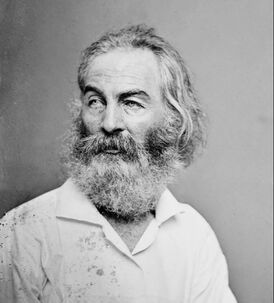
Walt Whitman, Encyclopædia Britannica
Andrew Carnegie
“Since the civilized world is now united by electric bonds into one body in constant and instant communication, it is largely interdependent and rapidly becoming more so. No nation can go to war now against another nation without going to war against all humanity. The world has become a family.” - 1907 Andrew Carnegie was then President of the New York Peace Society
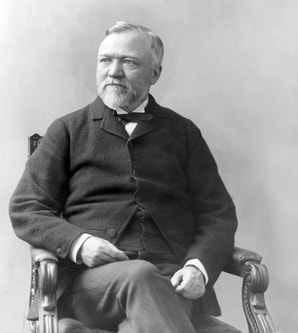
Andrew Carnegie, Encyclopædia Britannica
Mark Twain
“Mark Twain’s religion was a faith too wide for doctrines-a benevolence too limitless for creeds. From the beginning he strove against oppression, sham, and evil in every form. He despised meanness; he resented … everything that savored of persecution or a curtailment of human liberties.” - from Mark Twain, A Biography by Albert Bigelow Paine
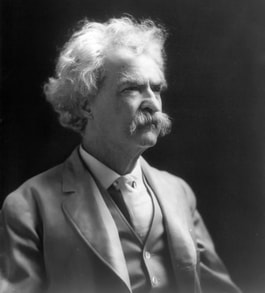
Mark Twain, Encyclopædia Britannica
Other prominent members of the original Twilight Club were:
James Howard Bridge, who later became Herbert Spencer’s American secretary, and who worked with Walter Russell for a number of years in this movement.
Oliver Wendell Holmes, Judge in the Supreme Court of the United States, author of The Common Law, friend of Emerson, Lowell and William James.
John Burroughs, naturalist, who wrote The Gospel of Nature.
Richard Watson Gilder, at that time President and Editor of the Century magazine.
Henry Holt, the publisher
The Second Era: 1895-1921
The Ethical Movement Continues Action
Walter Russell was twenty-four years of age in 1895, when he joined the Twilight Club. Between that time and 1921, leading workers in this ethical movement were:
Walter Russell
James Howard Bridge
Edwin Markham
Helen Knox
Charles De Kay
Alexis Carrel
Dan Beard
John Dewey
Andrew Carnegie
Robert Collier
Richard La Gallienne
Cornelius Vanderbilt
Sophie Irene Loeb
Mrs. Harry P. Whitney
August Heckscher
Irving Bacheller
Rudyard Kipling
Ralph Waldo Trine
Sir Arthur Conan Doyle
Hamlin Garland
Theodore Roosevelt
Lee De Forest
Calvin Coolidge
John Habberton
George Gould
Irvin Cobb
Louis Tiffany
Walter Damrosch
Dr. Nicholas Murray Butler
Jesse Laskey
Ernest Thompson Seton
Michael Pupin
Adolph Ochs
William Childs
During the second era, the Twilight Club members met at various houses in New York, most frequently at the home of Richard Watson Gilder. Various members and invited guests presided as speakers at these meetings, Andrew Carnegie, Edwin Markham, Walter Russell and Theodore Roosevelt being among these.
Andrew Carnegie strongly advocated the necessity of spreading the seeds of culture, morality and ethics. He promised to endow millions for educational purposes—particularly through building libraries. He also organized the Authors’ Club, providing a house on 34th Street in New York, entirely free of charge providing that each member of the club agreed to write something every year that had a direct bearing on and reference to the moral code of ethics.
The Twilight Club movement inspired many written works related to the code. Others besides writers became equally engaged in action. Out of this visionary effort came the Scout movement, started by Lord Baden-Powell in England and Dan Beard in America. The Chicago group was inspired to form a branch of the Twilight Club, which included an Authors’ Club. As their meetings were ‘rotated’ from house to house, they eventually named their group the Rotary Club, now the Rotary Club International, with millions of members all over the world devoted to service. Other service clubs followed, such as the Kiwanis and the Lions.Others inspired by the Twilight Club vision, such as Edwin Markham and Sophie Irene Loeb, worked to bring about change in social conditions, such as the elimination of sweatshops, compulsory education and child labor laws. Eugene Grace, president of the Bethlehem Steel Company, and Adolph Ochs, owner of the New York Times, worked to establish advertising censorship. Thomas J. Watson and Walter Russell campaigned for the elimination of the caveat emptor practice of business, which eventually led to the establishment of the Better Business Bureaus.
“Build thee more stately mansions, O my soul,
As the swift seasons roll!
Leave thy low-vaulted past!
Let each new temple, nobler than the last,
That thee from heaven with a dome more vast,
Til then at length are free,
Leaving thine outgrown shell by life’s unresting sea.”
-from The Chambered Nautilus,
by Oliver Wendell Holmes, Senior
Walter Russell
James Howard Bridge
Edwin Markham
Helen Knox
Charles De Kay
Alexis Carrel
Dan Beard
John Dewey
Andrew Carnegie
Robert Collier
Richard La Gallienne
Cornelius Vanderbilt
Sophie Irene Loeb
Mrs. Harry P. Whitney
August Heckscher
Irving Bacheller
Rudyard Kipling
Ralph Waldo Trine
Sir Arthur Conan Doyle
Hamlin Garland
Theodore Roosevelt
Lee De Forest
Calvin Coolidge
John Habberton
George Gould
Irvin Cobb
Louis Tiffany
Walter Damrosch
Dr. Nicholas Murray Butler
Jesse Laskey
Ernest Thompson Seton
Michael Pupin
Adolph Ochs
William Childs
During the second era, the Twilight Club members met at various houses in New York, most frequently at the home of Richard Watson Gilder. Various members and invited guests presided as speakers at these meetings, Andrew Carnegie, Edwin Markham, Walter Russell and Theodore Roosevelt being among these.
Andrew Carnegie strongly advocated the necessity of spreading the seeds of culture, morality and ethics. He promised to endow millions for educational purposes—particularly through building libraries. He also organized the Authors’ Club, providing a house on 34th Street in New York, entirely free of charge providing that each member of the club agreed to write something every year that had a direct bearing on and reference to the moral code of ethics.
The Twilight Club movement inspired many written works related to the code. Others besides writers became equally engaged in action. Out of this visionary effort came the Scout movement, started by Lord Baden-Powell in England and Dan Beard in America. The Chicago group was inspired to form a branch of the Twilight Club, which included an Authors’ Club. As their meetings were ‘rotated’ from house to house, they eventually named their group the Rotary Club, now the Rotary Club International, with millions of members all over the world devoted to service. Other service clubs followed, such as the Kiwanis and the Lions.Others inspired by the Twilight Club vision, such as Edwin Markham and Sophie Irene Loeb, worked to bring about change in social conditions, such as the elimination of sweatshops, compulsory education and child labor laws. Eugene Grace, president of the Bethlehem Steel Company, and Adolph Ochs, owner of the New York Times, worked to establish advertising censorship. Thomas J. Watson and Walter Russell campaigned for the elimination of the caveat emptor practice of business, which eventually led to the establishment of the Better Business Bureaus.
“Build thee more stately mansions, O my soul,
As the swift seasons roll!
Leave thy low-vaulted past!
Let each new temple, nobler than the last,
That thee from heaven with a dome more vast,
Til then at length are free,
Leaving thine outgrown shell by life’s unresting sea.”
-from The Chambered Nautilus,
by Oliver Wendell Holmes, Senior
Third Era: 1921-1927
Society of Arts and Science
Organized by Walter Russell, Edwin Markham, & Thomas J. Watson
After the war years, Thomas J. Watson, head of International Business Machines, became inspired by the ideals of the ethical movement organized by Herbert Spencer, wanting the business world to practice these principles. He offered to pay all expenses necessary for the club activities. He, Walter Russell and Edwin Markham decided to stress culture as well as ethics, since culture stems from the arts, for World War One had caused a drop in cultural growth and patronage of the arts. They decided to call this extension of the Twilight Club, The Society of Arts and Science. Taking leadership, Thomas J. Watson and Walter Russell—who lectured for twelve years to IBM employees on better business practices—worked with others, such as Francis Sisson, from the banking, business and legal world, to uplift the standards of industry, law and justice.
After the war years, Thomas J. Watson, head of International Business Machines, became inspired by the ideals of the ethical movement organized by Herbert Spencer, wanting the business world to practice these principles. He offered to pay all expenses necessary for the club activities. He, Walter Russell and Edwin Markham decided to stress culture as well as ethics, since culture stems from the arts, for World War One had caused a drop in cultural growth and patronage of the arts. They decided to call this extension of the Twilight Club, The Society of Arts and Science. Taking leadership, Thomas J. Watson and Walter Russell—who lectured for twelve years to IBM employees on better business practices—worked with others, such as Francis Sisson, from the banking, business and legal world, to uplift the standards of industry, law and justice.
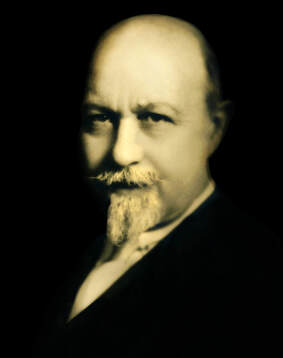
Walter Russell
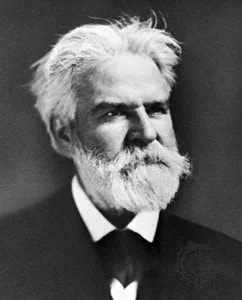
Edwin Markham
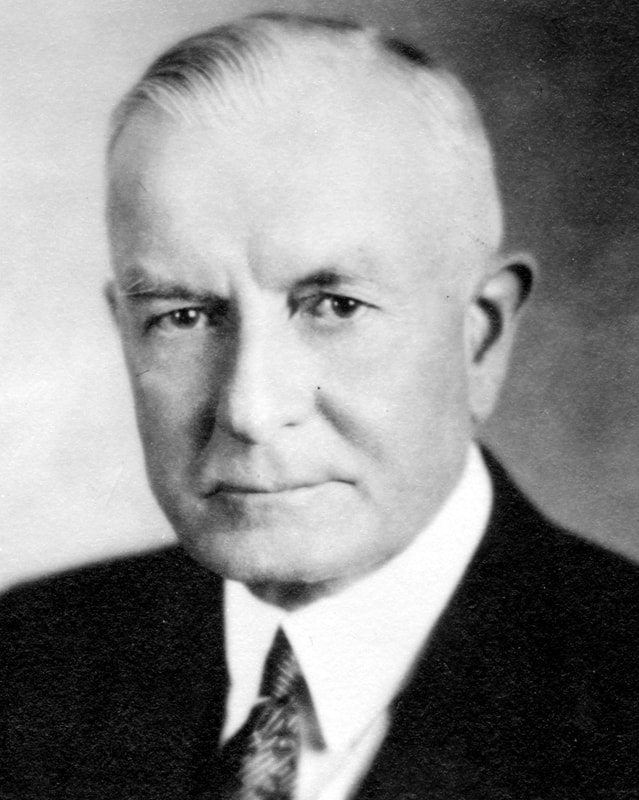
Thomas J. Watson Sr.
Fourth Era: 1927-1935
Society of Arts and Science
Walter Russell took over the presidency of The Society of Arts and Science for seven years. During this period, the Bronx River Parkway was built, beautifying New York, and becoming a model for the rest of the country. Also during this era, the Society of Arts and Science gave medals in recognition of genius in the arts and sciences. As well, the efforts against caveat emptor and the promotion of Thomas J. Watson’s “Think” campaign continued.
The Fifth Era: 1935-1939 and the War Years
Society of Arts and Science
During the years 1935 to 1939, Walter Russell and Thomas J. Watson continued the work, but during the war years, there was almost complete cessation of the work, though every year Thomas J. Watson held a large meeting at the Waldorf Astoria in New York, attended by about five thousand people, at which Walter Russell would give the banquet address.1935, Alexis Carrel publishes Man, the Unknown
French-American surgeon Alexis Carrell was the winner of the 1912 Nobel Prize in medicine, for his pioneer transplant work at the University of Chicago and with the Rockefeller Institute for Medical Research.
Man, the Unknown was reprinted in America fifty times after the first publication, and was translated into eighteen languages.
“The science of man will be the task for the future. Man must now turn his attention to himself. The development of the science of man, even more than that of the other sciences, depends on immense intellectual effort. We must realize clearly that the science of man is the most difficult of all sciences. Science, which has transformed the material world, gives man the power of transforming himself. To progress again, man must remake himself.”
French-American surgeon Alexis Carrell was the winner of the 1912 Nobel Prize in medicine, for his pioneer transplant work at the University of Chicago and with the Rockefeller Institute for Medical Research.
Man, the Unknown was reprinted in America fifty times after the first publication, and was translated into eighteen languages.
“The science of man will be the task for the future. Man must now turn his attention to himself. The development of the science of man, even more than that of the other sciences, depends on immense intellectual effort. We must realize clearly that the science of man is the most difficult of all sciences. Science, which has transformed the material world, gives man the power of transforming himself. To progress again, man must remake himself.”
Sixth Era: 1946-1960
The University of Science and Philosophy
for the Study of "The Science of Man"
“In vain do we build the city if we do not first build the man.” - Edwin Markham
In 1948, Walter and Lao Russell established the Walter Russell Foundation at Swannanoa, on Afton Mountain in Waynesboro, Virginia. Here they wrote their Home Study Course in Universal Law, Natural Science and Living Philosophy, and added to the list of books Walter Russell had already completed writing: The Universal One, The Message of the Divine Iliad, and The Secret of Light.
In 1957, they obtained the charter which changed their name to The University of Science and Philosophy, a home study university registered in the state of Virginia, a nonprofit institution devoted exclusively to the cultural, moral and intellectual advancement of the human race through the study of the Science of Man.
In 1948, Walter and Lao Russell established the Walter Russell Foundation at Swannanoa, on Afton Mountain in Waynesboro, Virginia. Here they wrote their Home Study Course in Universal Law, Natural Science and Living Philosophy, and added to the list of books Walter Russell had already completed writing: The Universal One, The Message of the Divine Iliad, and The Secret of Light.
In 1957, they obtained the charter which changed their name to The University of Science and Philosophy, a home study university registered in the state of Virginia, a nonprofit institution devoted exclusively to the cultural, moral and intellectual advancement of the human race through the study of the Science of Man.
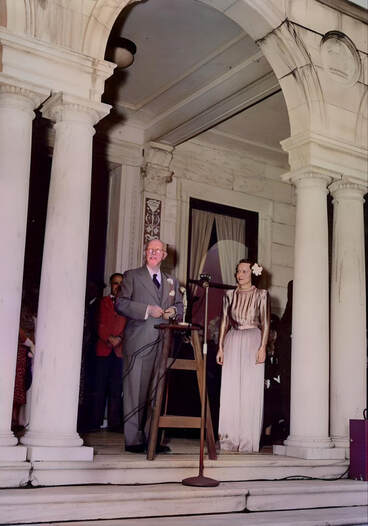
Seventh Era: 1960-1963
Extension to the World
The Home Study Course in Universal Law, Natural Science and Living Philosophy and the books by Walter and Lao Russell have gone out around the world. The concept that “genius is inherent within everyone” is transforming the lives of many people who have been inspired by this philosophy of balanced action. Walter Russell died on his 92nd birthday, May 19, 1963.
Eighth Era: 1963-1988
Lao Russell Continues the University’s Work
From the time of her husband’s death, Lao Russell continued the work of the University of the Science of Man, writing further books—Love and Why You Cannot Die!—lecturing across America, and corresponding with students and friends around the world. She continued the Man-Woman Equality League she had started earlier, and founded the International Age of Character Clubs.
“Every person in this world has a deep purpose,” expounded Lao Russell. “Happiness consists of finding one’s own purpose and working to fulfill it.” By so doing, every person will contribute to the One-World Purpose of unity and harmony, which, she was convinced, can come about through right action based on that scientific knowledge which builds men and women of character, power, imagination and vision.
“Every person in this world has a deep purpose,” expounded Lao Russell. “Happiness consists of finding one’s own purpose and working to fulfill it.” By so doing, every person will contribute to the One-World Purpose of unity and harmony, which, she was convinced, can come about through right action based on that scientific knowledge which builds men and women of character, power, imagination and vision.
Ninth Era: 1988-1996
The University Under the Board of Directors
With Lao’s death, May 5th, 1988, the University entered its next era, under the leadership of Lao Russell’s Board of Directors, introduced with the University’s World Balance Conference of 1989. In that decade, the Home Study Course and books continued to inspire students around the world; Chief Melford Okilo wrote his books on the principles of Balance and continued extension of the work in Africa, as well as delivering a Letter to World Leaders at the United Nations; research into the applicability of Walter Russell’s scientific concepts was carried out by President Timothy Binder; publication of further of the Russells’ writings was continued by Emilia Lee Lombardi; and students gathered regularly at Swannanoa for seminars and the annual Homecoming.
“Mediocrity is self-inflicted; genius is self-bestowed.” - Walter Russell
“Mediocrity is self-inflicted; genius is self-bestowed.” - Walter Russell
Tenth Era:1997-2018
The University of Science and Philosophy
Global Expansion
USP’s Web Site informs over 20,000 people a month about the Russell work, many of whom stop to read Walter Russell’s famous biography, The Man Who Tapped the Secrets of the Universe, and become inspired to contact the University.
In 1999 we take the historic step of connecting powerfully with our own history—the original Twilight Club. This new ethical movement, as much needed today in the twilight of the coming century, as it was at the turn of this century, is a vision for the new millennium.
In 1999 we take the historic step of connecting powerfully with our own history—the original Twilight Club. This new ethical movement, as much needed today in the twilight of the coming century, as it was at the turn of this century, is a vision for the new millennium.
ELEVENTH ERA: 2019-PRESENT
the University of Science and Philosophy
The Russell Museum
USP opens new headquarters in historic downtown Waynesboro, Virginia. The Russell Museum currently displays Walter Russell's artwork. Tours are given on the history of The University of Science and Philosophy and the life of Walter and Lao Russell. The USP continues to work locally and globally to continue this ethical movement for the good of mankind.
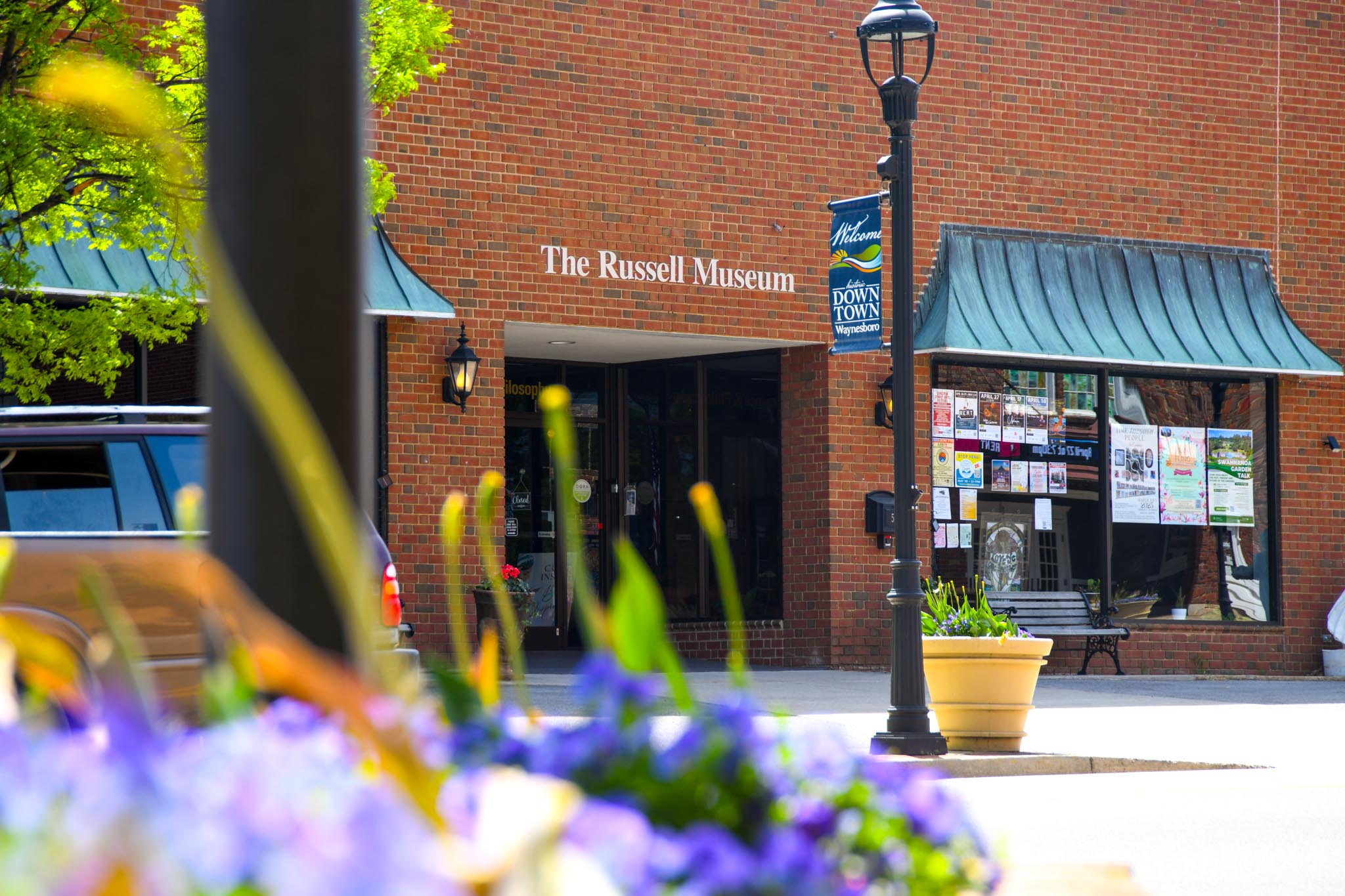
The lifeworks of Walter and Lao Russell are on display at the museum for all to see. For more information, visit us at www.therussellmuseum.org or contact via email at store@philosophy.org or phone at 1-800-882-LOVE(5683).
